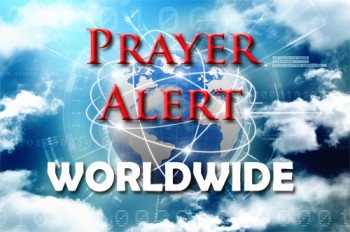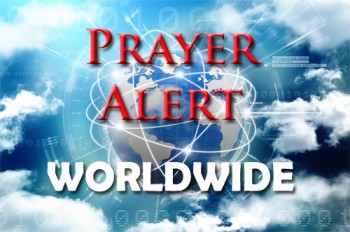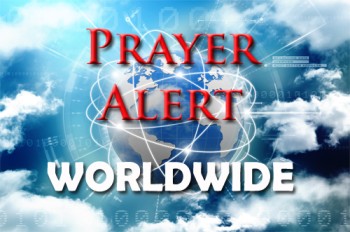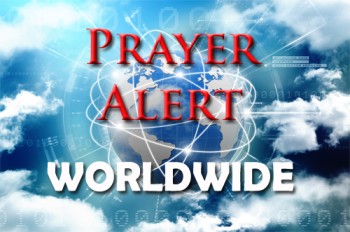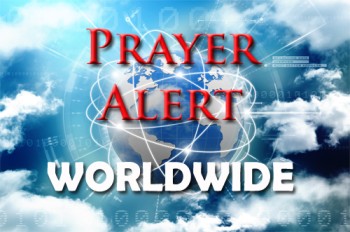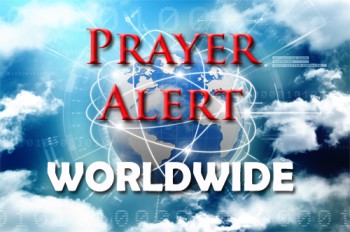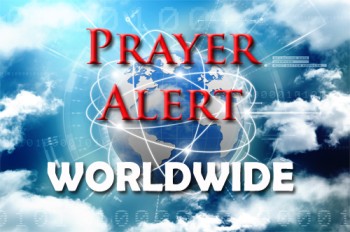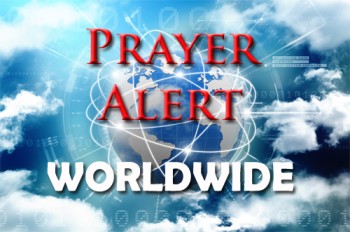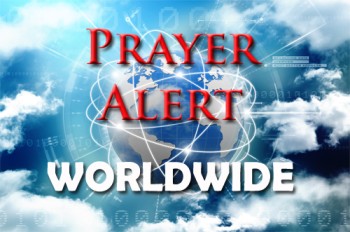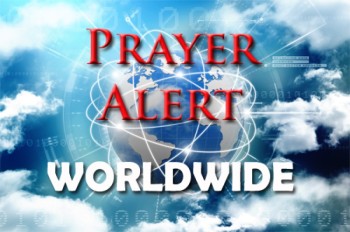Displaying items by tag: South Africa
South Africa: opposition leader found guilty of hate speech
Opposition leader Julius Malema has been found guilty of hate speech by the country’s equality court after inflammatory remarks he made at a 2022 rally. The Economic Freedom Fighters (EFF) chief, known for provocative statements, said that ‘a revolution demands that at some point there must be killing’, following an incident where a white man allegedly assaulted a party member. The court ruled that while condemning racism is acceptable, these words amounted to incitement to violence. Malema and his party rejected the judgment, saying the words had been taken out of context. The conviction adds to Malema’s history of controversy, including a ban from entering the UK and criticism from Donald Trump for incendiary remarks and songs. His case underscores the continuing struggle with racial tensions in South Africa more than three decades after apartheid ended.
Earth Day: highlighting different types of pollution
To celebrate Earth Day (22 April), environmental activists gathered at a beach in Cape Town to clean the coastline and raise awareness about plastic pollution. Organiser Lyniel Traut called for a 60% reduction in plastic production by 2040, urging corporations to both act and educate. Another activist said she wanted her children and grandchildren to grow up in a safe, pollution free, environment. Earth Day also spotlighted hidden plastic pollution from synthetic clothing. Rachael Z Miller, founder of the Rozalia Project, explained how polyester garments shed microfibres which end up in oceans, harming marine life and potentially entering the human food chain. To combat this, she has developed the Cora Ball - a laundry tool which reduces fibre shedding and captures microplastics before they reach waterways. Though helpful, such tools are just a start: the UN has urged the textile industry to shift towards a more sustainable production model to reduce its climate impact. See
South Africa: court battle over African penguin’s future
A pivotal high court hearing in March could determine the fate of the critically endangered African penguin. Conservationists have filed a legal challenge against the South African government and the commercial pelagic fishing industry over former environment minister Barbara Creecy’s decision to extend island fishing closures for ten years. The case, set for 18-20 March, will address constitutional rights, scientific research, and international conservation law. The dispute centers on whether competition for fish stocks, particularly sardines and anchovies, is a key factor in the penguin's decline. A panel of international experts suggested using a scientific method for determining island closures which would be of maximum conservation benefit to the penguins and the smallest cost to commercial fisheries. Instead, Creecy extended existing closures without adopting new recommendations. With the African penguin’s status recently changed from ‘endangered’ to ‘critically endangered’, the court's ruling carries profound implications for its survival.
South Africa: Trump threatens funding cuts
Donald Trump has threatened to cut all US funding to South Africa over unproven claims that the government is seizing land from white landowners. Cyril Ramaphosa has moved swiftly to deny these claims categorically. The controversy stems from South Africa’s new Expropriation Act, which allows land redistribution in the public interest but does not permit arbitrary seizures. Legal experts argue the law is a constitutional mechanism to correct racial disparities from apartheid, not a tool for mass expropriation. Trump’s claims may have been fuelled by AfriForum, a right-wing South African lobby group which has long pushed the narrative of land grabs and a so-called ‘white genocide’, despite researchers debunking these assertions. Meanwhile, South African officials warn that retaliatory measures, including restricting mineral exports to the USA, could follow if Trump enforces funding cuts.
South Africa: rescue operation at besieged illegal gold mine
A rescue operation is under way at a gold mine which has been under police siege since Aug as part of a government initiative targeting illegal mining, an industry valued at 60 billion rand a year. The siege, which included cutting off food and water, drew criticism from human rights organisations. In December a court ruled that volunteers could send down supplies to the trapped men, and recently ordered the state to launch a rescue operation. Rescuers, using metal cages to recover people from depths of over 2,000 metres, have now recovered 78 bodies and 216 survivors, who face charges of illegal mining, trespassing, and immigration violations. Miners' rights groups report that hundreds more survivors and dozens of bodies remain underground.
South Africa: hundreds of illegal miners holed up underground
The authorities have arrested fourteen individuals, including a wounded teenage boy, after they emerged from an illegal gold mine in Stilfontein, where hundreds of miners remain trapped underground. The miners, called zama zamas, search abandoned mines for gold, often risking arrest, deportation, or violence. Operating in over six thousand defunct mines, they endure dangerous conditions, relying on contractors for food and supplies. This underground economy is dominated by criminal syndicates which exploit the miners, sometimes forcing them to work under threat. Efforts to remove the miners include blocking shafts and restricting supplies. Officials estimate 350-400 miners remain underground, but some reports put the number at as much as four thousand. The government is looking at ways of getting the miners out, but fears of poisonous gases and armed syndicates are complicating rescue plans.
South Africa: Ramaphosa's second term, but with a coalition government
Cyril Ramaphosa has commenced his second full term as president, after his party formed a coalition government. In his inauguration speech, Ramaphosa highlighted the necessity for leaders to work together to address deep inequalities, warning that failure to do so could destabilise the nation. The ANC, governing since apartheid ended in 1994, lost its majority for the first time, securing only 40% of the vote and losing 70 seats. The Democratic Alliance (DA), which received 22%, and three smaller parties joined the coalition, having agreed a common agenda of fixing the country’s infrastructure, providing basic services such as water and power, and creating jobs. Ramaphosa has said that the country’s society remains deeply unequal and highly polarised, so he knows that there are some huge challenges ahead.
South Africa: ANC’s coalition dilemma
As predicted before the elections, the African National Congress (ANC) has lost its parliamentary majority, securing only 40% of the vote. To govern, it needs a coalition partner or might attempt a minority government. It could partner with the Democratic Alliance (DA), which won 22% but is widely seen as aiming to protect white minority privileges. Alternatively, it could align with Jacob Zuma's uMkhonto weSizwe (MK), which surprised many by gaining 15% of the vote, or Julius Malema's Economic Freedom Fighters (EFF); a third alternative is a government of national unity. Cyril Ramaphosa insists any coalition must respect the current constitution: the ANC, EFF, and MK combined still fall short of the two-thirds majority needed for constitutional changes. The decision about what to do will have a major impact on South Africa, which faces major security and economic challenges.
South Africa: has the ANC lost its way?
For years, the African National Congress (ANC) stood as a beacon of hope in South Africa, dedicated to ending white minority rule and championing democracy and equality. Revered under Nelson Mandela, the ANC's transformation from a liberation movement to a ruling political party brought high expectations. However, thirty years later, many South Africans feel disillusioned, believing it has failed to fulfil its promises. Former president Jacob Zuma, ousted in 2017 due to corruption allegations, has returned with a new party, uMkhonto weSizwe, criticising his successor Cyril Ramaphosa, but his disqualification from a parliamentary run due to a criminal conviction has heightened political tensions. The 29 May elections see the ANC struggling to maintain its majority and possibly facing having to form a coalition government - which would mark the most significant political shift since the end of apartheid in 1994.
South Africa: new health bill weeks before election
Cyril Ramaphosa has signed the National Health Insurance (NHI) Act into law, aiming to provide universal health coverage and address the country's two-tier health system. The law seeks to balance a publicly funded sector, which serves 84% of the population and is overburdened, with private insurance access enjoyed by a minority. He hailed the law as a major step towards equality, rejecting the continuation of privileges for a few. The act will gradually reduce the role of private insurance, establish a public fund for free healthcare access, and regulate fees and prices for NHI-funded benefits. Critics argue the law will strain public finances, reduce patient choice, lower care quality, and drive doctors out of the country. Opponents, including the Democratic Alliance and civil society group AfriForum, plan to challenge it in court, claiming it is a vote-seeking ploy before the highly contested May 29 elections. The Health Funders Association noted the law’s gradual implementation, assuring no immediate changes to medical scheme benefits, contributions, or taxes. Supporters, like the NEHAWU labour union, urge full political support to ensure proper funding for the NHI.
